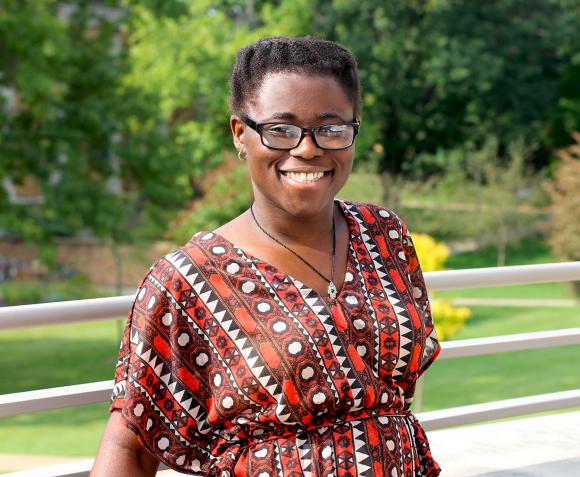Courier Spring 2018
By Veronika Hanks '18
Roxane Gay insists that Hunger: A Memoir of (My) Body, which topped the New York Times Bestsellers List, is not a story of triumph. “This is not a weight loss memoir,” she writes, “There will be no picture of a thin version of me, my slender body emblazoned across the book’s cover, with me standing in one leg of my former fatter self’s jeans.” It is, however, a story of healing. It is a story that is true. And most of all, amidst the #MeToo reckoning that is sweeping the nation, it is a story that desperately deserves to be told and heard.
Hunger is about living life in a body that is not accommodated by society. Gay’s frank discussion of sexual assault, weight gain, eating disorders, and harassment confronts readers with the inescapability of embodiment. It forces us to consider the impact the bodies we live in have on the trajectory of our lives, be those bodies black, female, fat, raped, disabled, or otherwise.
The struggles of the body are lifelong struggles, ones that even privileged communities like Saint Mary’s cannot escape. Gay stressed, both in her memoir and in her talk at Saint Mary’s, that recovery is a lifelong endeavor. She said, “People want to believe that we survive the trauma, and that’s that. They don’t want to know about after, and I wrote about after.”
Struggles of the body endure and persist. The trauma of rape and sexual assault haunt victims long after the initial attack. The legacy of racism and the oppression of black bodies endures and persist in society at large. Female bodies continue to be harassed, used, and abused long after the inception of this country’s long legacy of feminist activism. Confronted with this reality, the version of healing Gay puts forward in Hunger is pertinent and convincing—healing is not a one and done endeavor. It requires that we heal continuously, over and over again.
Whether we aim to heal our bodies from illness, our minds from mental anguish, our souls from spiritual drought, or our communities from their histories of racism and sexism, we must approach our work with the understanding that triumph rarely occurs. Far more often, we are not those who have survived, but rather those who are surviving. Our healing is lifelong and continuous.
Veronika Hanks '18 is a global studies and philosophy double major with minors in gender and women's studies and Russian. Saint Mary's has enabled her to study abroad, tutor at the Writing Center, participate in a State Department funded summer institute, and more. As a media relations intern, she finds joy in being able to showcase the best that Saint Mary's has to offer.

